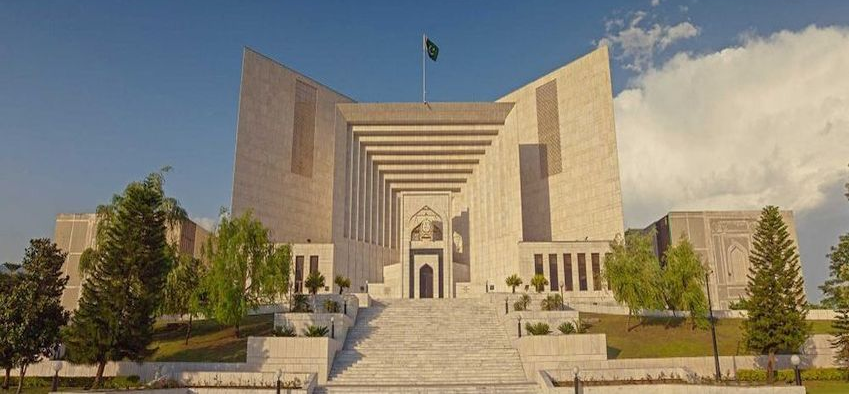Prolonged Imprisonment and Delays in Judicial Proceedings should be considered Mitigating Factors --- Supreme Court of Pakistan
Islamabad 28-09-2024: The Supreme Court of Pakistan, in a majority decision, converted the death penalty of Ghulam Rasool to life imprisonment on two counts, citing prolonged incarceration and the existence of mitigating circumstances. The judgment was delivered by a three-member bench comprising Mr. Justice Jamal Khan Mandokhail, Mr. Justice Syed Hasan Azhar Rizvi, and Ms. Justice Musarrat Hilali, in [Criminal Appeal No. 56/2019] against the Lahore High Court’s decision dated 21.03.2013.
The case stemmed from an incident on May 10, 2002, where Ghulam Rasool, along with co-accused, allegedly opened fire on Haji Muhammad Ishaq and Mushtaq Ahmad at their shop in Faisalabad, leading to their deaths. An FIR was registered under Sections 302 and 109 of the Pakistan Penal Code (PPC). After a prolonged trial, the appellant was convicted and sentenced to death on two counts by the Trial Court in 2008. The Lahore High Court upheld this decision in 2013, which was then appealed before the Supreme Court of Pakistan.
During the appeal proceedings, the Supreme Court of Pakistan scrutinized the evidence and noted ambiguities regarding the exact number of shots fired by each accused and whose shot caused the fatal injuries. The Court also noted discrepancies in the recovery of the crime weapon and ruled that without forensic evidence, the weapon recovery was inconsequential.
Mr. Justice Jamal Khan Mandokhail, delivering the majority opinion, stated that the incident occurred spontaneously without any proof of premeditation, making it a “free fight” situation rather than a pre-planned attack. The Court observed that the prosecution had failed to establish beyond reasonable doubt that the appellant’s shots alone caused the deaths. As a result, the Court ruled that while the conviction under Section 302(b) PPC for intentional murder was maintained, the death sentence should be altered to life imprisonment.
The Court further noted that Ghulam Rasool had been incarcerated for nearly 18 years, including 11 years in a death cell due to delays in the judicial process. The judgment referred to the case of Ghulam Shabbir Vs. The State (Crl.R.P. 103/2017), emphasizing that prolonged imprisonment and delays in judicial proceedings should be considered mitigating factors.
Mr. Justice Syed Hasan Azhar Rizvi, in a dissenting opinion, argued that the prosecution had effectively proven its case against the appellant with strong ocular and medical evidence. He emphasized that the presence of motive and the brutal nature of the crime warranted the retention of the death penalty, irrespective of the delays in the trial and appeal proceedings. Mr. Justice Syed Hasan Azhar Rizvi highlighted previous precedents where the Supreme Court of Pakistan ruled that procedural delays should not justify leniency in sentencing.
By a majority of 2 to 1, the Supreme Court of Pakistan dismissed the appeal, maintained the conviction, but converted the death sentence to life imprisonment on two counts. The Court ordered that all sentences run concurrently with the benefit of Section 382-B of the Cr.PC, which allows the time served in custody to be considered as part of the sentence.
The judgment sets a significant precedent for cases involving prolonged incarceration and delays in trial and appeal processes. It also highlights the Supreme Court of Pakistan discretion in balancing justice and mercy by considering mitigating circumstances, even in serious offenses like double murder.
Powered by Froala Editor








